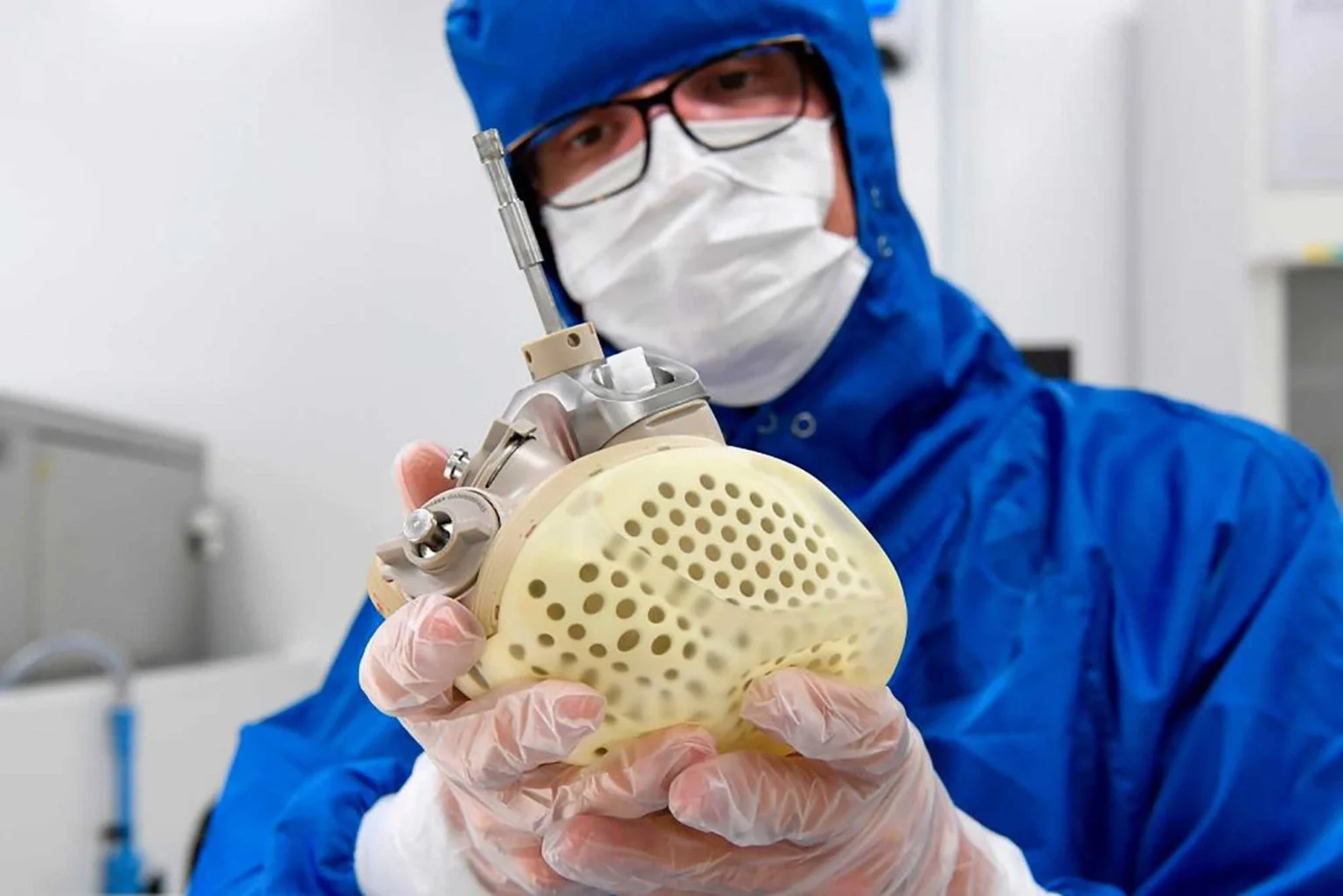Artificial Heart: History and Interesting Information

The heart is a vital organ for humans. The heart is responsible for pumping blood to the lungs and throughout the body at all times. Without a heart, humans cannot live. However, for some people, the heart may not function properly. There are even heart conditions that are difficult to treat with medication or intervention and surgery. Therefore, the final option in the form of a heart transplant or replacement must be done. Heart replacement can be done using someone else’s heart donor or by using an artificial heart. The development of artificial hearts has been pursued by cardiovascular development centers considering that heart transplantation using human heart donors has limitations in several respects.
The development itself has been around for a long time, but it still needs a further review process so that its performance is more stable. As we know, the heart is a vital organ in the body whose job is to pump blood. Because it works independently without the influence of the brain, its stability needs to be maintained. An artificial heart is an artificial device whose job is to replace the function of the heart to pump blood to the lungs and throughout the body. Often an artificial heart is installed as a “bridge” or temporary therapy before a heart transplant is carried out. However, sometimes artificial heart surgery is performed to replace the heart permanently
A Brief Explanation of Artificial Hearts
The heart is responsible for pumping blood throughout the body. When you experience problems, of course its performance will decrease, causing problems in the body. Seeing how important the function of the heart is in the human body, scientists then developed an artificial heart.
For those who don’t know, an artificial heart is a prosthesis that functions to replace the function of a biological heart. The artificial heart performance system is outside the human body whose components are composed of a heart-lung bypass.
The first person to use an artificial heart was Barney Clark. In 1982, he underwent an artificial heart transplant operation called Jarvik-7. After 112 days of installation, Barney Clark was confirmed dead.
The creator of Jarvik-7 is a scientist named Robert Jarvik. The first version, Jarvik-7 was made of plastic and metal hardware. The function of Jarvik’s device is designed like a biological heart, namely it can pump blood.
After Clark’s death, a person with heart dysfunction, many people began to develop artificial hearts.
Requirements for People Who Can Have an Artificial Heart Transplant
To carry out an artificial heart transplant, several requirements must be met. This is a patient safety and security procedure. The requirements that must be met include:
- The patient experiences severe heart failure and is at risk of death
- His chances of survival were very low because his heart was no longer functioning properly
- Not a smoker
- His body condition allows him to carry out major surgical procedures.
- People who have a heart transplant must be willing and able to follow the entire medical program
Read More : First Heart Transplant and Know the Risks
Doctors most recommend transplantation when patients experience the following health conditions:
- Have a history of cancer or other diseases that pose a big risk to your body’s condition
- He is an old man whose body’s ability to heal itself is increasingly weakening
- Have other illnesses in the form of severe infections, or obesity.
Types of Heart Disease
Not everyone can undergo artificial heart transplant surgery. Usually the doctor will first see how the patient’s heart function is still good and can improve or whether the disease is getting worse. There are several types of heart disease that most often result in heart failure so that ultimately an artificial heart transplant is required, including:
- Disorders of the heart muscle (cardiomyopathy)
- Coronary heart
- Congenital heart disease
- Heart rhythm disorders (arrhythmia)
- Heart valve disease
- Infection of the pericardium (pericarditis) and inside the heart (endocarditis)
Causes of Heart Disease that People Should Avoid
Conditions that can be a trigger factor for someone suffering from heart disease include:
- High blood pressure (hypertension)
- Uncontrolled diabetes
- Fat buildup in the coronary blood vessels (atherosclerosis)
- Infection
- Excessive stress
- Rarely exercise
- Often consume high levels of sugar, salt or fat
- Too many alcoholic drinks
- Often lacks sleep
- Smoke
- Using drugs
Risks of Artificial Heart Transplantation
Even though it is a safe procedure, it does not rule out the possibility that after the operation some effects will appear. Therefore, it is best to understand the risks that may arise later.
1. Infection
Heart medications in the form of immunosuppressants work by suppressing the body’s immune system. As a result, the body’s immunity becomes weakened and ultimately triggers infections that are difficult to cure. Regular checks are needed to find out what condition the transplanted heart is in to prevent serious infections.
2. Side Effects of Treatment
After the operation is successful, the doctor will prescribe immunosuppressant medication for life. The goal is to prevent the body’s rejection of the transplanted heart. However, you need to know that if you take this drug long term, it will cause side effects in the form of kidney damage.
3. Problems with Arteries
Most commonly, after undergoing heart transplant surgery, patients will usually experience problems with the arteries. As a result, blood circulation in the heart becomes unstable and can potentially result in a heart attack.
4. Cancer
The potential for developing lymphoma cancer increases due to a weakened immune system. The cause is regular consumption of immunosuppressant drugs so that the immune system becomes weakened.
5. Rejection of the new heart by the body
As previously explained, because an artificial heart is not made of meat but rather a component made from special materials, it is likely that the body will give resistance, whether mild or severe.
How to Prevent Heart Disease
As a very important organ in the body, maintaining heart health is a must. Don’t neglect your health, because even though there are various heart medications, in fact almost all of them only have the effect of reducing pain.
If a heart is already experiencing problems, the chances of it being completely healthy again are very small even after a transplant. To prevent the emergence of various dangerous diseases, do the following:
- Stop smoking as quickly as possible, whether smoking with tobacco or vaping
- Change food that was originally instant food into healthy food with balanced nutrition to fulfill the body’s nutrition optimally
- Do exercise regularly, it doesn’t need to be anything heavy like lifting weights or walking hundreds of kilometers. Choose exercise according to your abilities and body health condition.
- Diligently check your body’s health with a doctor so you can find out your health condition.
- For those with diabetes, thyroid or hypertension, make sure you regularly check with a doctor who is used to treating them or is an expert in their field.
Rather than undergoing a heart transplant procedure, it would be much better if you maintain your body’s health. For those who are addicted to drinking alcohol and smoking drugs, start rehabilitation because these habits can endanger heart conditions.
When is an Artificial Heart Transplant?
We must be able to recognize if there is a worsening of the body’s condition or health due to heart disease or for those who have undergone heart surgery. Therefore, for people who already have a history of heart disease, check their heart health regularly, usually after the medication runs out or when the body gives strange reactions, such as frequent fainting, fatigue, nausea, vomiting, and others.
Don’t wait for your heart condition to get worse before seeing a doctor. Because if that’s the case, usually the treatment process will be much more difficult and will of course cost a lot of money.
Most importantly, try to eat foods with balanced nutrition. Avoid foods or drinks that should be taboo, such as foods with high cholesterol levels or triggers for increased blood pressure.
Indeed, an artificial heart can help humans survive longer. However, there are still side effects so you need to take extra care so that the side effects don’t become serious.
Read More : What You Should Know about Heart Transplant




